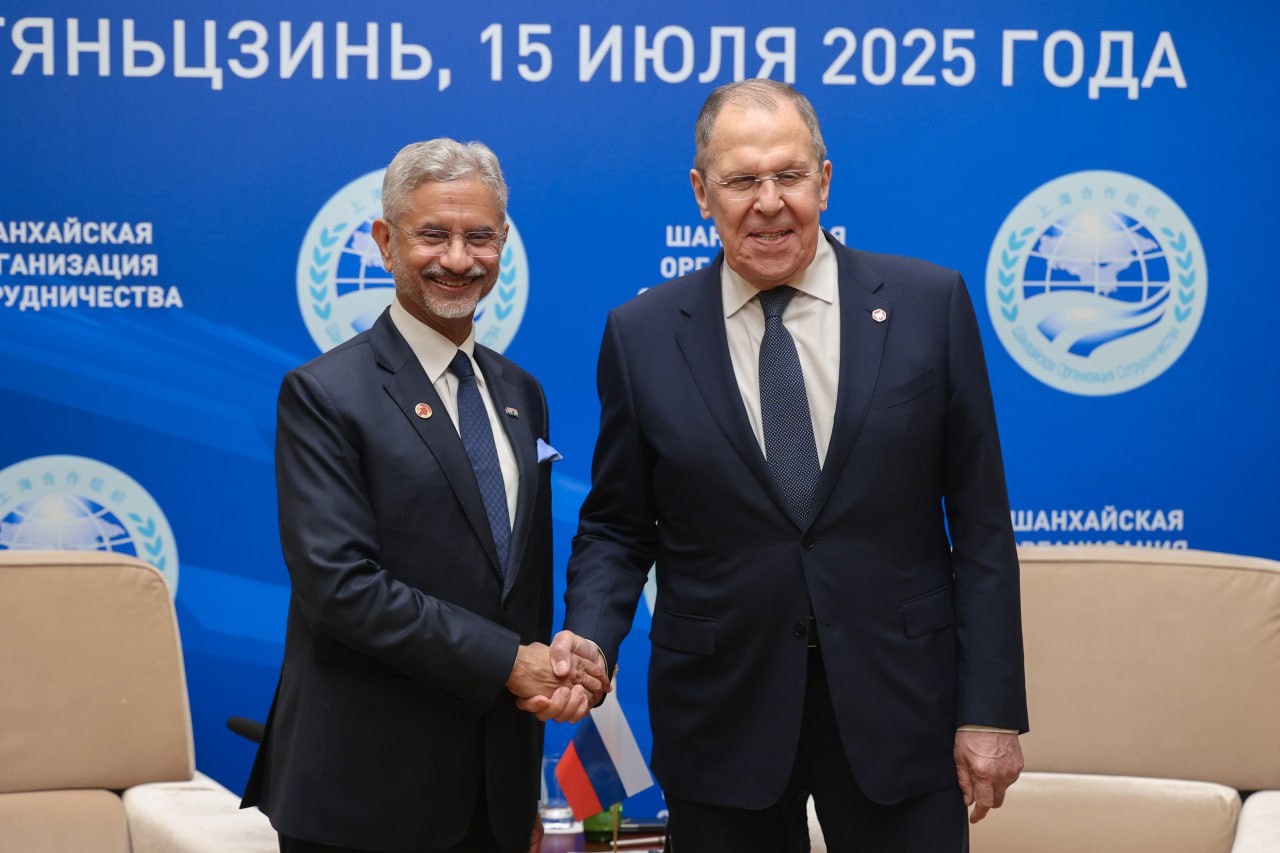India-Russia Diplomatic Momentum Builds Amid U.S. Tariff Pressure; India's Jaishankar to Meet Russia's Lavrov
India’s External Affairs Minister S. Jaishankar is scheduled to meet Russian Foreign Minister Sergei Lavrov on August 21, according to Russia’s Foreign Ministry, as reported by Reuters and cited by trusted Indian news and media platforms.
The meeting adds to a series of high-level diplomatic exchanges between New Delhi and Moscow amid increasing U.S. trade pressure.
 |
| Image Source: MFA Russia |
On August 7, India's National Security Advisor (NSA) Ajit Doval met Russian President Vladimir Putin in Moscow, a day after the latest U.S. tariff announcement. The Kremlin released footage of the meeting, showing a formal handshake, though no details of their discussion were made public.
During his visit, Doval confirmed that President Putin is expected to visit India by the end of 2025. Speaking to local media, Doval had described India-Russia relations as “very special” and highlighted the role of sustained high-level engagement in deepening bilateral cooperation.
Earlier that day, Doval had also met Russian Security Council Secretary Sergey Shoigu, with defence and energy issues reportedly on the agenda.
POTUS Trump’s latest executive order, issued under the International Emergency Economic Powers Act (IEEPA), accuses India of “undermining U.S. national security” by importing Russian-origin crude.
India imported approximately 44% of its crude oil from Russia in Q2 2025, citing price stability and strategic necessity.
In response to the tariff hikes, the Ministry of External Affairs (MEA) in New Delhi labeled the actions “unjustified and unreasonable,” and noted that several Western countries continue to engage in trade with Russia across various sectors.
Kremlin spokesman Dmitry Peskov reiterated Russia’s position, stating that “sovereign countries have the right to choose their own trading partners.” Russian officials have dismissed the U.S. sanctions as “illegitimate economic coercion.”
Recent coordination between BRICS nations--notably India and Brazil--signals growing resistance to unilateral trade pressures. Prime Minister Narendra Modi and Brazilian President Luiz Inacio Lula da Silva recently stated support for economic sovereignty and expanding South-South trade.
President Putin’s anticipated visit to India, coupled with ongoing diplomatic exchanges, suggests a deepening India-Russia engagement against the backdrop of global realignments. Defence, energy cooperation, and multilateral coordination through BRICS are expected to feature prominently in upcoming talks.
